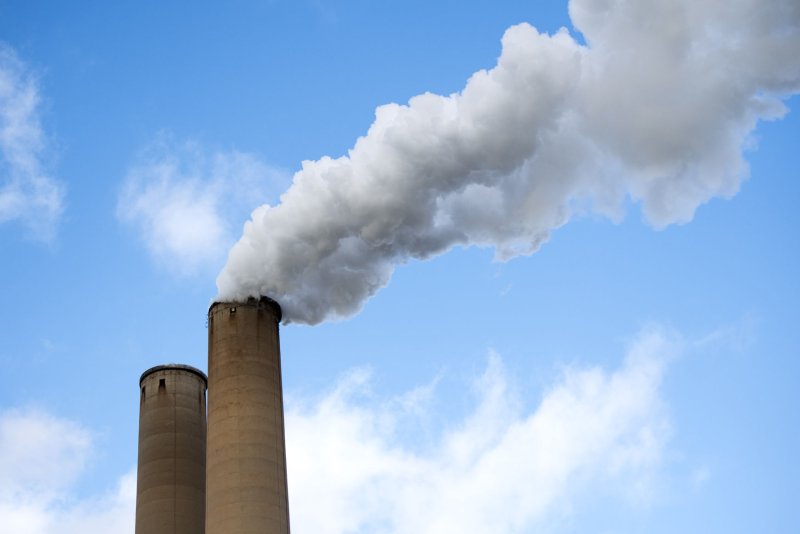Dozens of U.S. coal plants closed over the last decade. New research suggests thousands of Americans are still alive as a result. Photo by Kevin Dietsch/UPI |
License Photo
Jan. 6 (UPI) -- Over the last two decades, dozens of coal plants in the United States have shuttered. The earliest victims were mostly the smallest, oldest plants, but more recently, even some of the country's largest coal plants have closed their doors.
New research suggests the reductions in coal pollution are not only helping save American lives, but also boosting crop yields.
According to a new study, as coal plants closed -- many of them, replaced by natural gas plants -- local pollution levels have dropped. In addition to emitting CO2, coal plants also produce more particulate matter and ozone, two main components of smog, one of the most common forms of air pollution.
Studies have linked smog with a variety of human ailments, including lung disease, heart disease, stroke and cancer. Previous research efforts have also detailed the effects of smog on plant health and local climate.
To calculate the positive effects of coal plant closings on crop and human health, scientists modeled the negative effects the coal plant emissions would have produced had they continued to operate between 2005 and 2016.
Researchers determined the shuttering of coal plants between 2005 and 2016 saved approximately 26,610 lives and 570 million bushels of corn, soybeans and wheat. Scientists detailed their estimates this week in the journal Nature Sustainability.
"The unique contribution of this study is its scope and the ability to connect discrete technology changes -- like an electric power unit being shut down -- to local health, agriculture and regional climate impacts," Jennifer Burney, an associate professor of environmental science at the University of California, San Diego, said in a news release. "We hear a lot about the overall greenhouse gas and economic impacts of the transition the U.S. has undergone in shifting from coal towards natural gas, but the smaller-scale decisions that make up this larger trend have really important local consequences."
"The analysis provides a framework for communities to more thoroughly and accurately assess the costs and benefits of local investments in energy infrastructure," she said.
Burney, the author of the new study, acknowledged that natural gas plants are also a significant source of pollution, but the plants produce a different mix of pollutants. She said more research is needed to determine the impacts of natural gas plant pollution on human and plant health.















